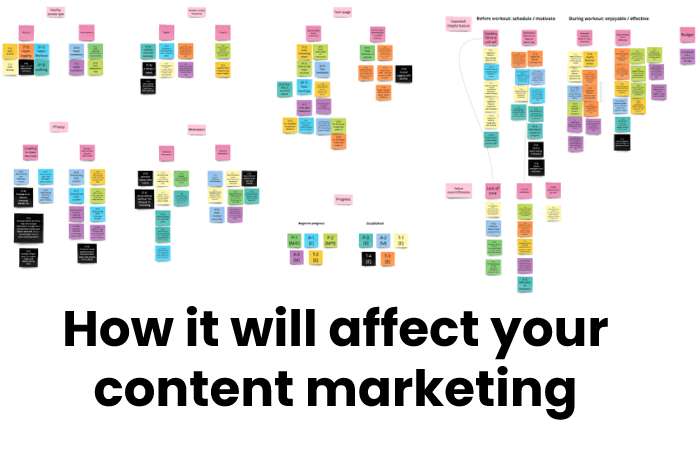Affinity Data: The Not Provided Count shows a sharp increase in the quantity of information Google is now withholding. We’ll soon lose access to keyword knowledge. Yes, it is frightful. It’s hardly the end of the world, though.
Perhaps, just perhaps, it’s time to make the long-overdue transition to a new type of user insight that might end up being far more effective than keywords. Meet affinity data, the next frontier in gauging the success of your marketing campaigns.
Table of Contents
What is Affinity Data?
Consider that you follow a few websites on crafts, have pinboards full of DIY inspiration, and have an email account linked to several local craft shops. On the weekends, you use Facebook to check in at your favourite craft fair, and occasionally, you Google new shops where you may buy supplies for crafts. Your online behaviour and social interactions, including email, give affinity data. In a nutshell, the “database of affinity” is the vast collection of people’s preferences depending on what they engage with. You appreciate crafts, according to the affinity data you derive from all the qualities.
Affinity is a long-term statistic in contrast to search intent. According to the theory, if you enjoy something now, there’s a good chance you’ll still like it in a year or two. It is an evaluation of emotional ties.
How does it work?
Currently, if you search for “party games for kids,” you may get lists of suggestions for your child’s next birthday. However, if a search engine’s algorithm included affinity data, it would be aware that you “loved” your friend’s shared link to grills that were on sale, checked in at the neighbourhood YMCA, and frequently received emails from a pool construction firm. When affinity remains considered, your findings may indicate that there are more outdoor or water-based games.
Beyond simple search intent, affinity data strives to give what you enjoy. Imagine it as the imaginary boyfriend you never had. A few years. It is an evaluation of emotional ties.
The future is near
Who will spearhead the change in affinity marketing? Why, of course, none other than Google? The first step is to eliminate keywords. The second phase will very indeed be integrating the new data. The first baby stages of the trend are already apparent in Google’s incorporation of +1 data into search results. But it will be considerably larger. Affinity data is currently almost entirely unavailable. We have the data, but there is no method to turn it into practical knowledge. However, shortly businesses will start to appear to take on the work of turning the raw data into useful statistics.
How it will affect your content marketing

So, this begs the crucial query: How does all of this apply to you, a marketer? First, keyword stuffing will decrease as access to keyword data becomes more complex (yay!). While content creators will continue to put premium material first, users’ interactions with it will be much more specialised. With Google’s Hummingbird upgrade, search results will focus more clearly on the query.
However, the effects go well beyond just lowering keyword influence. Think about this for a second: What might you do if you were to know precisely what each of your distinct clients enjoyed and responded to? Said a lot. Consider reaching out to very niche demographics in a one-of-a-kind, personalised manner. Your marketing will be more successful due to tapping into what consumers remain drawn to by using affinity data in conjunction with search intent.
Three actions you can do right away are:
You may start to conceive in terms of affinity even without having access to the data. When generating fresh material, consider who would be interested in it. Think of that individual. Perhaps it’s even a person you know. Imagine writing it to them after that.
Spend some time investigating the demographics of your audience. What does it get up to? What features do they share? Their variations? Understand your audience as well as you would your child.
Last but not least, conform to Schema.org requirements. These meta-tags will be used more and more by Google to provide high-quality results. Your material will gradually disappear if it is not marked up.
Also read: Appslub Is It Safe To Use This Gaming Website?
Related posts
Featured Posts
App for Managers
App for Managers: If you’re working as a manager, you can safely bet that each day is going to present new…
What is the Business in Tourism
Business in Tourism Tourism Business Ideas Examples Do you enjoy introducing visitors to the unique and exciting aspects of South…


